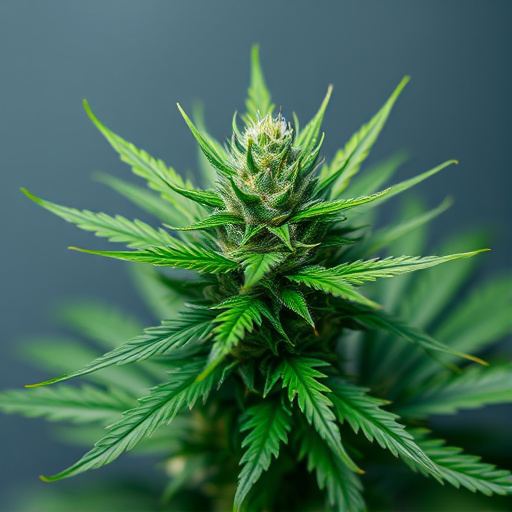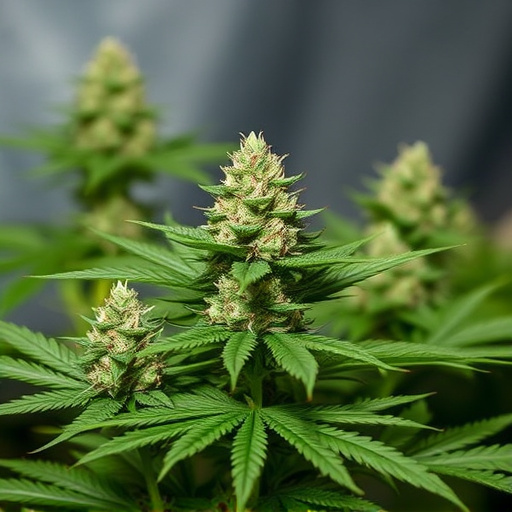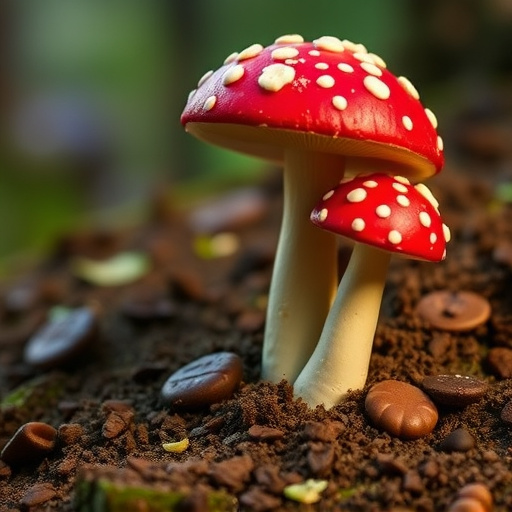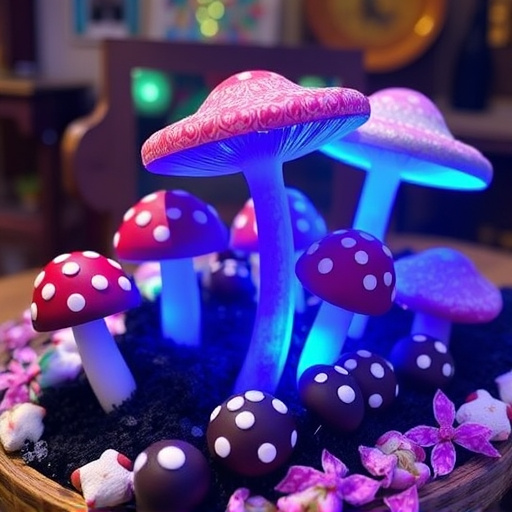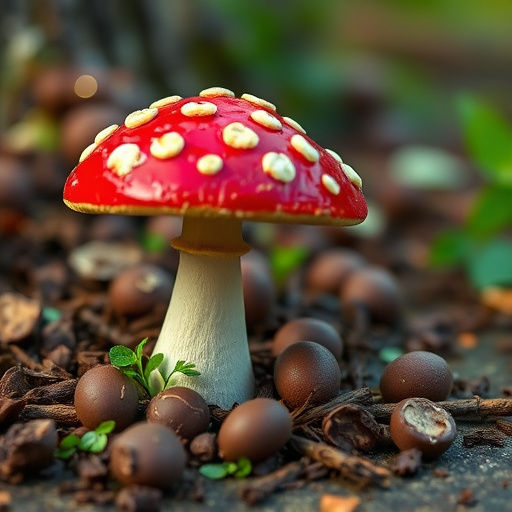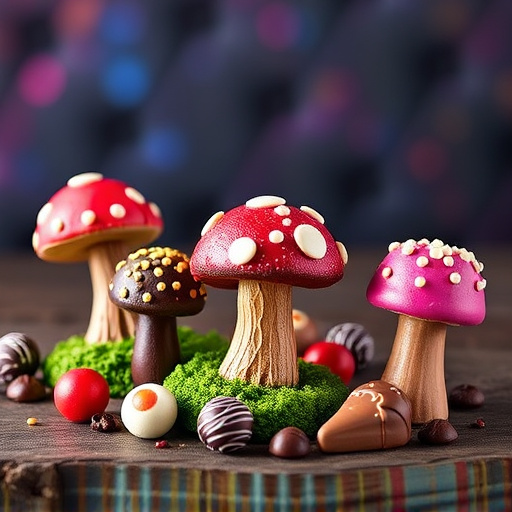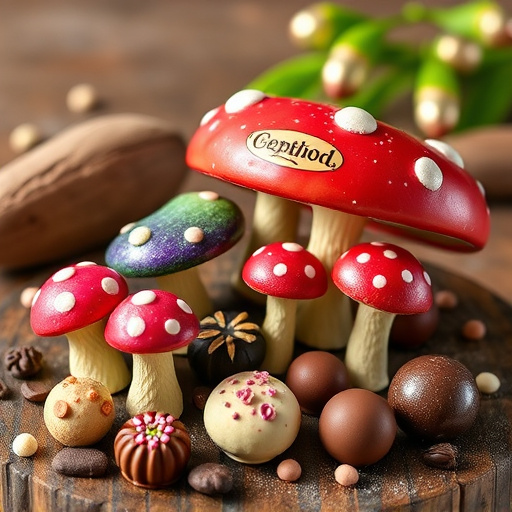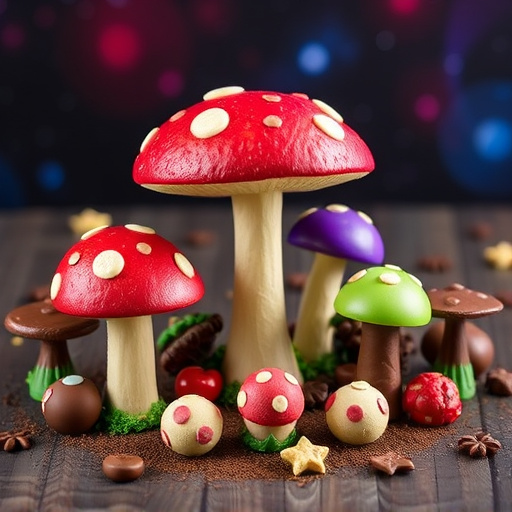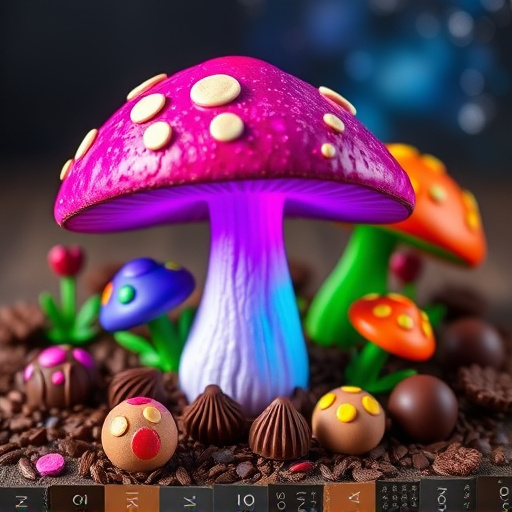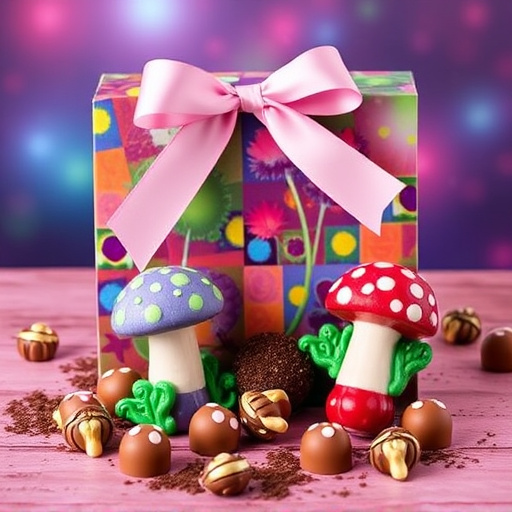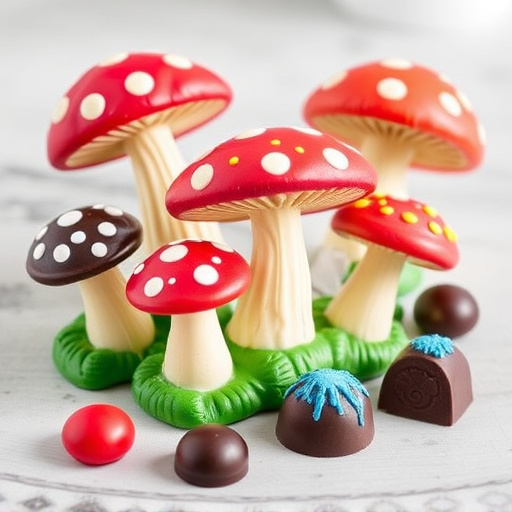The legal status of magic mushroom chocolates, or psilocybin-infused treats, varies globally. While some countries have decriminalized or legalized them for medicinal purposes, others maintain strict prohibitions. As the discussion around psychedelic therapy evolves, so do regulations. Consumers should stay informed about local laws to ensure compliance and safety when considering these unique culinary products.
“Magic mushroom chocolates, an intriguing fusion of culinary delight and psychedelic potential, have sparked curiosity and debate. This unique confectionery offers a discreet way to experience the effects of psilocybin, a compound known for its mind-altering properties. The ‘legal status’ of these chocolates is a complex issue, varying drastically around the world. In this article, we explore the global landscape of magic mushroom chocolates, their potential benefits and risks, and the evolving legal considerations that surround them.”
- What Are Magic Mushroom Chocolates?
- The Legal Status of Magic Mushroom Chocolates Around the World
- Potential Benefits and Risks of Consuming Magic Mushroom Chocolates
What Are Magic Mushroom Chocolates?
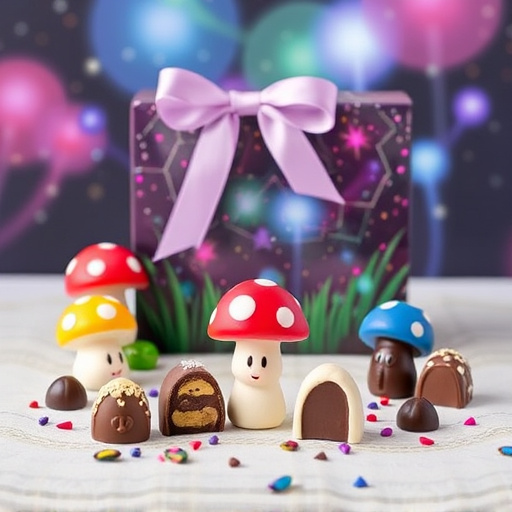
Magic mushroom chocolates, also known as psilocybin chocolates, are delicious treats infused with compounds found in magic mushrooms (psilocybin and psilocin). These compounds have psychoactive properties, meaning they can alter perception, mood, and thinking. However, it’s crucial to understand their legal status varies significantly worldwide. In some countries, these chocolates are completely illegal due to their mind-altering effects, while others have legalized them for medicinal or recreational use under strict regulations.
The growing interest in psychedelic therapy and mental health treatments has led many regions to reevaluate the legal standing of magic mushrooms and their derivatives. Some jurisdictions have started allowing psilocybin-assisted therapy for conditions like depression, anxiety, and end-of-life distress. As a result, magic mushroom chocolates may be available as part of these therapeutic settings. However, consumers must always verify local laws and regulations to ensure compliance and safety when considering these unique culinary experiences.
The Legal Status of Magic Mushroom Chocolates Around the World
The legal status of magic mushroom chocolates varies greatly around the world. While some countries have decriminalized or even legalized psilocybin-containing products, including chocolate, others maintain strict prohibitions against them. This disparity is largely driven by differing cultural attitudes and the evolving scientific understanding of psilocybin’s therapeutic potential.
In regions where magic mushroom chocolates are legal, they often fall under regulations similar to those for cannabis edibles. Production and sale are typically subject to strict quality control measures and age restrictions to ensure safe consumption. However, as the global conversation around psychedelic therapy continues to gain momentum, many countries are reevaluating their stances, potentially paving the way for increased access to psilocybin-based products in the future.
Potential Benefits and Risks of Consuming Magic Mushroom Chocolates
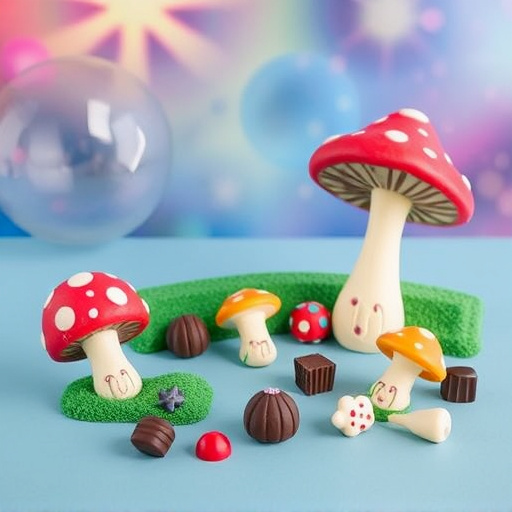
Magic mushroom chocolates, as the name suggests, are treats infused with psilocybin, the active compound found in certain types of magical mushrooms. While they offer a unique and potentially alternative way to consume psychedelic substances, it’s crucial to understand their potential benefits and risks. Some proponents argue that magic mushroom chocolates may aid in mental health treatments, stress reduction, and creative stimulation due to psilocybin’s known effects on altering perception and promoting introspective experiences. Studies have shown promising results in using psilocybin-assisted therapy for conditions like depression and anxiety, with some users reporting long-lasting positive effects.
However, the legal status of magic mushroom chocolates remains a complex issue. Their legality varies greatly worldwide; while some countries have decriminalized or legalized psychedelic substances for medical or personal use, others strictly prohibit them. Even in places where psilocybin is legal, products like chocolates may face regulatory challenges due to their commercial nature. Consuming these chocolates also carries risks, including the potential for an intense and unpredictable experience, especially if consumed in an uncontrolled environment or by those with pre-existing mental health conditions. As with any substance, it’s essential to be aware of local laws and seek professional advice before considering magic mushroom chocolates.
Magic mushroom chocolates, an innovative confectionery concept, spark interest worldwide. However, understanding their legal status is paramount due to varying regulations regarding psychedelic substances. While some regions permit limited access for medicinal or research purposes, many countries strictly prohibit them. Consumers should exercise caution and prioritize safety, as the effects of these chocolates can vary greatly. Despite potential risks, ongoing discussions around therapeutic applications highlight the need for further exploration and responsible use of magic mushroom chocolates within a regulated framework.
